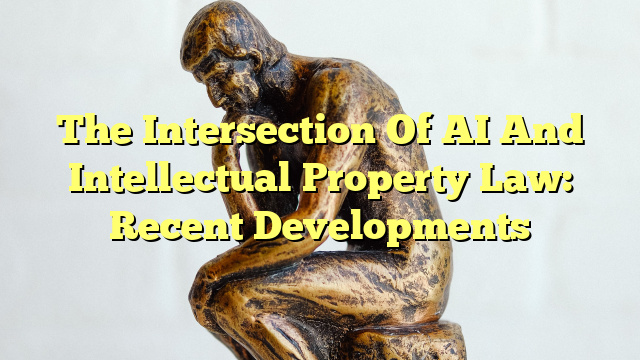The intersection of artificial intelligence (AI) and intellectual property (IP) law is an increasingly important area of research. AI technologies are rapidly advancing, and their development has raised a series of legal issues concerning the protection of intellectual property rights. As AI technologies become more widely used, it is important to understand the legal implications of their use. This article will discuss the latest developments in AI, how AI is affecting intellectual property, and the relationship between artificial intelligence and law.
What is the Intersection of Artificial Intelligence and Intellectual Property Law?
The intersection of AI and IP law relates to legal issues surrounding the ownership, control, and use of intellectual property created by AI technologies. This includes issues such as who owns the rights to AI-created works, how AI-created works should be treated in terms of existing copyright laws, and whether AI-created works should be protected by patent or trade secret laws. Additionally, there are issues related to how IP law should be applied to the use of AI technologies, such as what type of legal obligations should be imposed on AI developers and users.
What are the Latest Developments in Artificial Intelligence?
AI technology has advanced rapidly in recent years, with AI applications now being used in many areas such as medicine, finance, transportation, and manufacturing. AI technologies are being used to automate processes, solve problems, and create new products and services. There has also been a significant increase in the number of AI-related patents filed in recent years, indicating the growing commercial importance of AI.
How AI is Affecting Intellectual Property?
The development of AI technologies has raised several legal issues related to intellectual property. For example, AI-created works may not be eligible for copyright protection, as copyright law typically only applies to human-created works. Additionally, AI technologies may be used to create new inventions that are patentable, but the question of who owns the IP rights in those inventions is not always clear. Finally, AI-created works may be protectable as trade secrets, but the question of whether AI developers or users should have an obligation to keep these secrets is a legal issue that needs to be addressed.
What is the Relationship Between Artificial Intelligence and Law?
The relationship between AI and law is complex and evolving. AI technologies have the potential to automate many legal processes, such as contract drafting, litigation, and dispute resolution. On the other hand, AI technologies can also be used to circumvent or subvert legal processes, as in the case of automated copyright infringement. Additionally, AI technologies can raise ethical and legal issues, such as privacy concerns and potential discrimination.
Conclusion
The intersection of AI and IP law is an important and complex area of research. AI technologies are rapidly advancing and their use is creating a series of legal issues related to intellectual property rights. It is important to understand the legal implications of their use, as well as the relationship between AI and law. Finally, as AI technologies become more widely used, it is important to consider the ethical and legal implications of their use.

